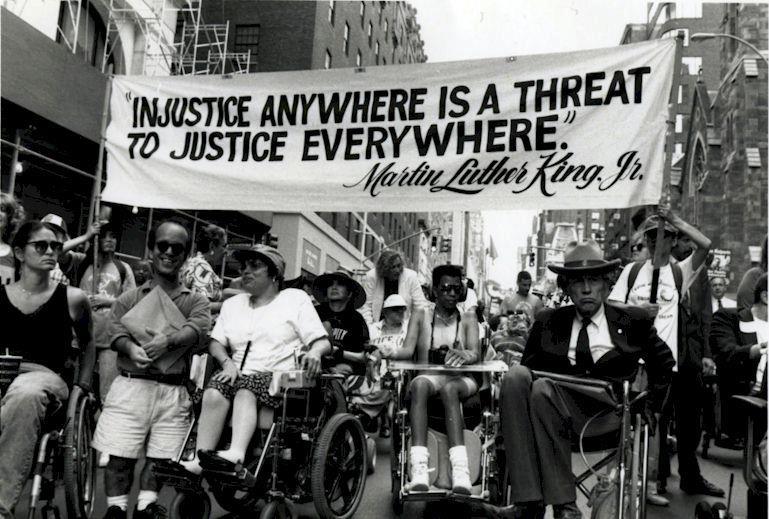This week, I was interrupted by hospital curfew, and our video work had to stop. Many thanks to Alejandra for stepping up and doing the vlog. I’m glad!
— Nick
May 3, 2009
Text as transcribed in the video
For those of you keeping track, this is Nick’s 248th day of living in a hospital in New York City, while he waits for community services to be established.
As you can imagine, living in a hospital can make it hard to get your blogging done on time.
Hi, my name is Alejandra. and I’m doing a guest video blog post for Nick today.
One of the things Nick wanted to talk about is how important it is to have good supports for people with disabilities.
This support can take lots of different forms. In some cases, we might be talking about nurses who work in a hospital setting. Or staff at a group home or another residential program, personal care workers from an agency, people who are hired individually, or even family members or partners.
In all these environments, the fundamental goal should be the same: the person working in the support role should help the person who needs support to live their life as smoothly and independently as possible, doing whatever is needed to make that happen.
In Nick’s case, he spent many years in a home environment, receiving care from nurses in the community, and from family members. Right now, he’s a patient in a hospital, so nurses are his primary support people. Once he’s home again, he’ll work with nurses, and eventually with personal assistants that he’ll hire through a consumer directed personal assistance program.
While in the hospital, Nick has had a lot of time to think about the relationships between support workers and the people they support. In the hospital, one staffer in particular (who has since left, unfortunately) stands out in his mind. She was very attentive to meeting his basic needs, and to learning about the things she might not have been familiar with, and making sure everything got done safely and on time. For him, this means things like: getting his medicine on time, getting properly set up on his computer when he needs to be, getting transferred safely in and out of his wheelchair, help with his ventilator needs, and most importantly, making an effort to understand the things he’s saying, and interact with him on a personal level. Because of the nature of the hospital environment, it’s not always easy to find a staff member who is able to do and learn all the things that a patient needs.
Quality care means different things for different people. A good support worker is able to adapt and learn the routine of the person they are working with. They do more than just meet basic needs. They make sure they facilitate the person’s life as much as possible, by helping them succeed at work, school, a recreational program, community outings, or just to be as comfortable as possible spending time at home.
People with disabilities know how important it is to have good support. It’s what makes our lives work. There are times when we focus a lot on those who don’t do the best job, or cut corners.
But it’s also really important to acknowledge that there are many people out there who are committed to their jobs as support workers – home health aides and others, doing their best to make sure that the people they work with have the highest possible quality of life. In our healthcare systems, we should find ways to reward this work (financially and otherwise), and to use these exemplary people as a model for how things should, and can work.
I think that’s all I’ve got for now, but if I’m missing something, I’m sure Nick can fill in the blanks later.
